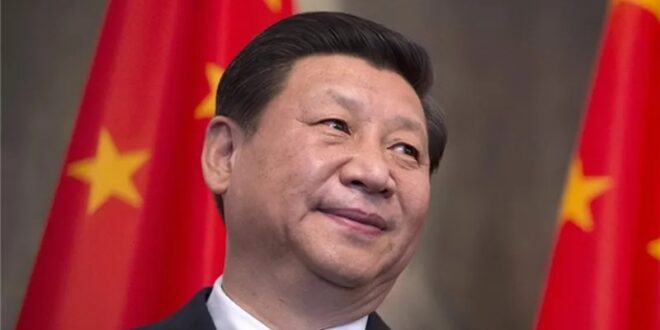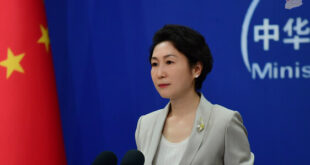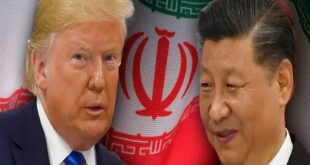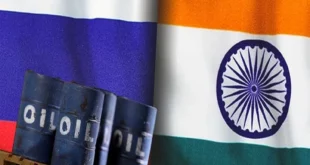Grand strategy refers to state’s plan of action to achieve its major long-term objectives. Beijing’s grand strategy relies on a combination of leadership declarations, policies, economic activities, and military means.
Since its inception in 1949, China’s strategic focus has shifted from revolution-survival-recovery to an emphasis on rejuvenation. A combination of internal and external factors has shaped this vision. Internally, the “century of humiliation” has driven strategies of regime survival and rejuvenation. Externally, tensions with the world’s leading democracies over its revisionist and expansionist policies have characterised ongoing rivalry.
Protecting Chinese ‘core interests’—the CCP-led political system’s sovereignty and securing its bloated territorial integrity—has been the source of the party’s legitimacy. China has resolutely resisted any perceived challenges to these interests by aggressively garnering power, whether it is in Hong Kong, Xinjiang, or Tibet, while simultaneously threatening control of Taiwan, Ladakh, and the South and East China Seas.
Safeguarding its overseas interests has increasingly become a part of China’s strategy. Foreign Minister Wang Yi has noted that there are 30,000 global Chinese businesses and over 100 million Chinese who travel abroad annually. As a result, China’s security ambit has been enlarged, to provide assurance that “China’s armed forces will fulfil their international responsibilities,” as articulated in the country’s 2019 Defence White Paper.
Xi Jinping’s ‘rejuvenation dream’ includes economic vibrancy, political initiatives, scientific innovation, cultural richness, and military versatility. These are all critical components of China’s grand strategy. Meanwhile, its 2019 defence budget was estimated at US$ 175.4 billion (second to the US), enabling modernisation, doctrinal changes, and organisational reforms; all aimed at forging a first-rate military.
The enigma of the China approach is that having greatly benefitted from international systems, Beijing has deliberately undermined those very systems by not fully supporting their governing elements—whether it is the WTO, the UN, the IMF, or the World Bank.
Xi’s Declarations
China’s strategic priorities constitute “comprehensive national security,” with regime security being key and economic security as the foundation and means to its grand strategy. In an article last year, The People’s Daily Online reviewed important declarations made by Xi during his address to the Central National Security Committee (CNSC) and the Congress of the Chinese Communist Party (CCCP). Xi’s declarations included the following:
Uphold the party’s absolute leadership over national security (17 April 2018, CNSC)
Improve strategic ability(17 April 2018, CNSC)
Adhere to the organic unity of the people’s security, political security, and national interest (18 October 2017, CCCP)
Play the first move well, play the active battle well, and be prepared to deal with any form of conflict, risk or challenge(18 January 2016, CCCP)
Take people’s security as the purpose and political security as the foundation, and embark on a national security path (15 April 2014, CNSC).While some of the flavour may have been lost in translation, the essence emerges when we consider the political survival of the CCP as being key to national and economic security. This implies that the bulk of the population are mere vassals of the state. After all, less than 6.7 per cent of the Chinese population of China are members of the CCP.
Finding Meaning in Xi’s Declarations
“Absolute leadership” is a reminder to the world of the CCP’s internal stakes. If any chance of egalitarianism was glimpsed in Beijing, this would have come as a rude awakening. It also brings into focus why the galloping growth is an imperative for regime survival.
A state’s strategic is predicated on its people and their talent to generate wealth. For large states, people are the most powerful consumers. When the productive age of a population declines, so do revenues. This has already happened to China since the 1979 One Child Policy. Add to this Beijing’s policy of predatory economic statecraft and territorial ambitions: it is then not surprising that these trajectories have not gone down well with the international community. No longer are nations enthused by China’s markets. Instead, they worry more about its disturbing intent.
In examining the linkage between the “unity of people’s security” with political security and national interest, one finds a contradiction that no action by the CCP can reconcile. The bond between people and politics is at best a tenuous one, for 6.7 per cent of the population to claim first right of existence is only conceivable in a tyranny. George Orwell put it succinctly: “All tyrannies rule through fraud and force, but once the fraud is exposed, they must rely exclusively on force.” This is a reminder of the possibility of the state imploding.
“To play the first move well, play the active battle well and prepare to deal with any conflict” are curious exhortations to make to the people. In a game of chess, the best first move is one that seeks the centre of the board, in order to control the maximum number of squares. In geopolitics, this not only suggests a ready preparedness for conflict, but also advises timing and the skill to tackle threats even before they have a chance to emerge. The conquest of Tibet, the offensive in Korea, the first and second Taiwan crises, the 1962 Sino-Indian War, the Sino-Soviet conflict, the annexation of the Paracel Islands, China’s disregard of international law, and its legally discredited expansionist claims in the South China Sea: all exemplify just what the “first move” means and what it entails for an adversary.
 Eurasia Press & News
Eurasia Press & News




